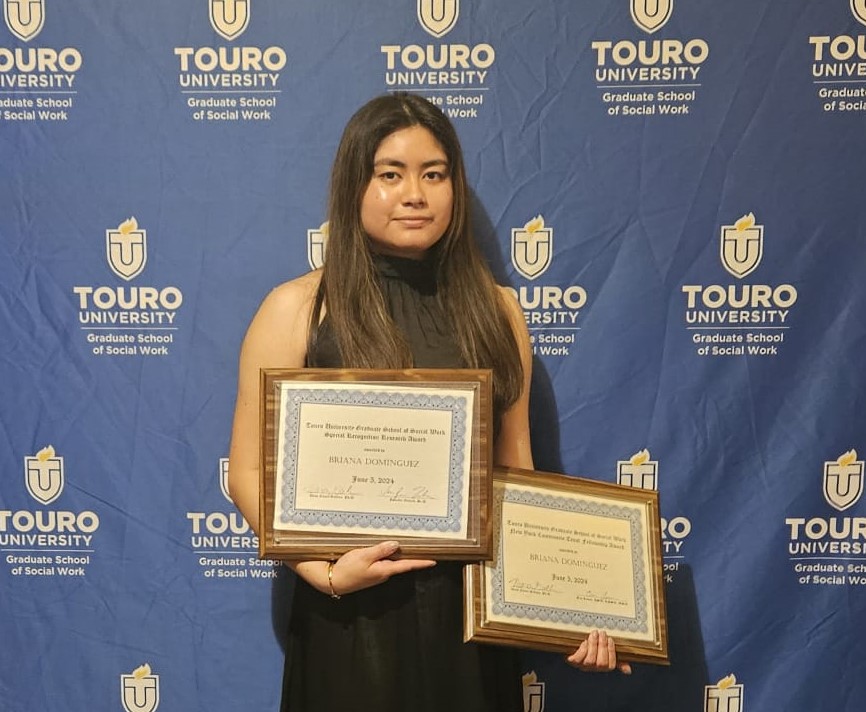Combatting Trauma in Undocumented Children with Cognitive Behavioral Therapy
Personal Experience Fuels Briana Dominguez's Research on Using Trauma-Focused Cognitive Behavioral Therapy with Undocumented, Unaccompanied Children

Briana Dominguez graduated from Touro University’s Graduate School of Social Work last month. She was awarded the school’s Special Recognition Research Award for her research project examining the use of Cognitive Behavioral Therapy (CBT) with undocumented children in New York City. She presented her findings at the National Academy of Medicine’s annual Social Work Student Night, where graduate students from NYC social work schools present their work that addresses physical, mental, or public health issues.
What did you learn in your research about therapy for undocumented children?
I learned that, unfortunately, there is very little research on Trauma-Focused Cognitive Behavioral Therapy (TF-CBT) with undocumented, unaccompanied children (UUC). This is unfortunate, since these children are moved about from one place to another until they are placed with a sponsor, and then they are forgotten about. There are attorneys willing to assist them pro bono with immigration legal issues; however, the children become even more traumatized because they have to talk about their experiences without a chance to process their trauma.
Why go to Touro’s Graduate School of Social Work and study resources for this population?
I came to the U.S. with my mom from Mexico when I was a toddler, so I have experienced many of the challenges immigrants face here. In college I volunteered as an interpreter at a law school clinic that represented minors in Special Immigrant Juvenile Status cases (SIJS) in immigration and family courts. Learning about the minors' life experiences, I realized how fortunate I was to come with a parent and to become documented. I wondered why there weren't more resources for them and felt I needed to do something. So I decided to pursue graduate school in social work and now I think I was destined to be part of Touro. Touro taught me there is more to social work than just case management. Touro's clinical focus put me on the right track for my career.
What lessons did you take away from researching unaccompanied children?
Unaccompanied children come to the U.S. mostly from El Salvador, Honduras, Guatemala, and Mexico. They have experienced trauma, dislocation, and loss. Without a parent or legal guardian they are at greater risk of having post-traumatic stress disorder (PTSD) and other symptoms, such as depression and anxiety from events related to their migration. They may have passed through regions considered the most dangerous, with violence from cartels that target children for kidnapping and ransom. In New York City, these children are suffering and at risk, but there are few studies on trauma work and evidence-based intervention models with this population. Policy and services in New York City, or recommendations to improve their mental health through social work interventions are sorely lacking.
What are your future plans? Do you expect to work with children and families?
Children are resilient and with the right services you get to see them heal and thrive. Most children want to be heard and have someone there to believe them. I want to use TF-CBT with undocumented children and am very lucky to be working now at the Family Wellness Program at Children’s Aid, where I use this model to provide trauma-informed services to parents and children affected by intimate partner violence. I serve mostly Spanish-speaking families. This is a great opportunity to use the TF-CBT model in both English and Spanish. Eventually, I hope to open an organization to serve unaccompanied undocumented children. I imagine a community center where the children can feel safe, wanted and cared for, but also receive therapy and legal help.

